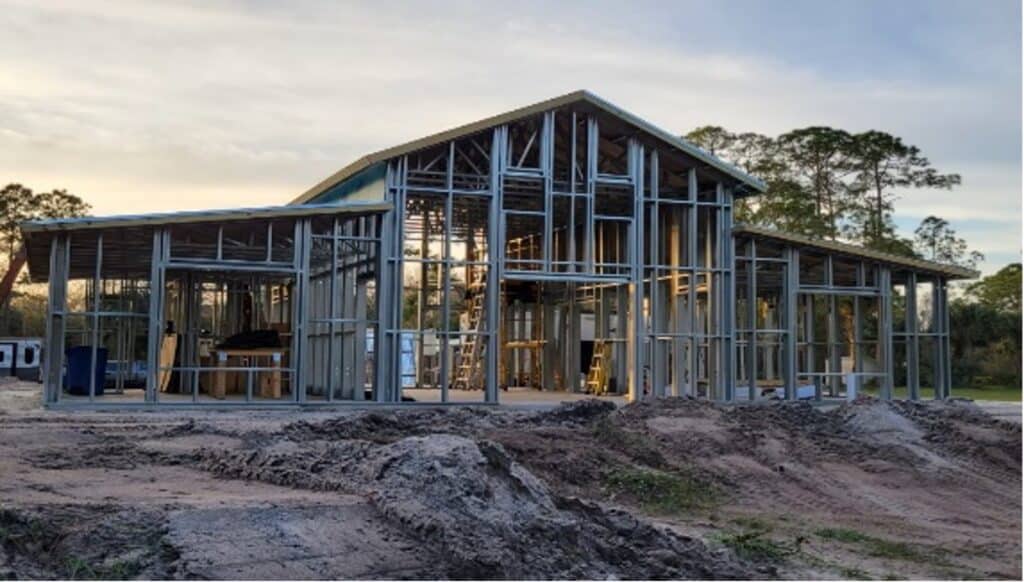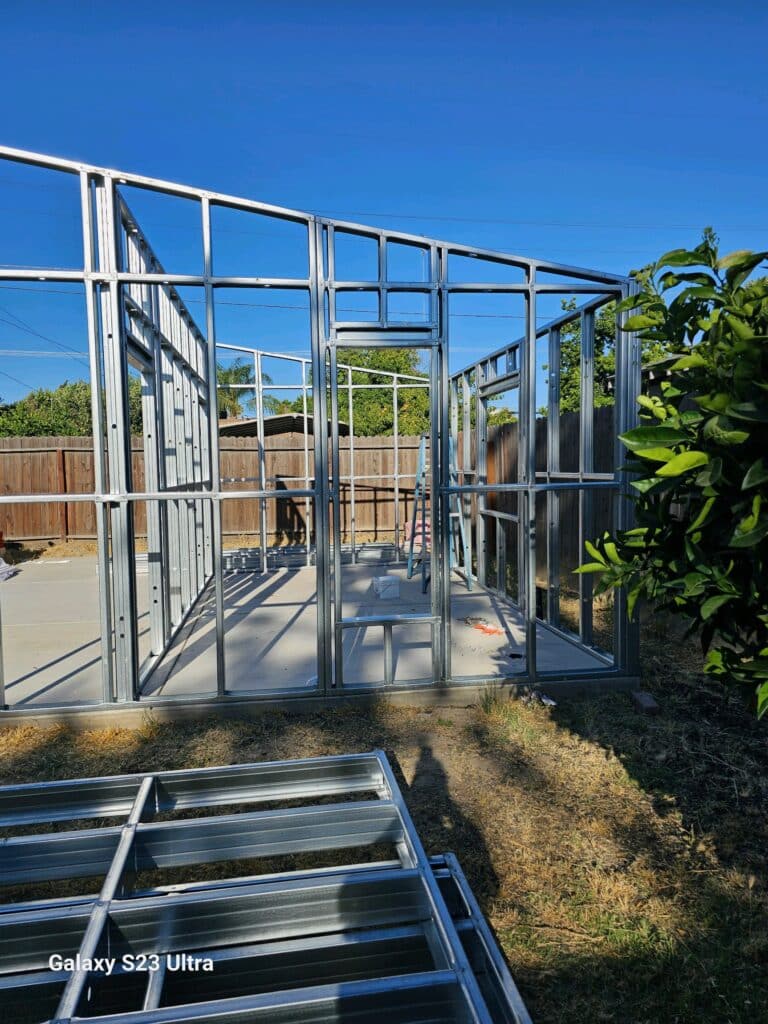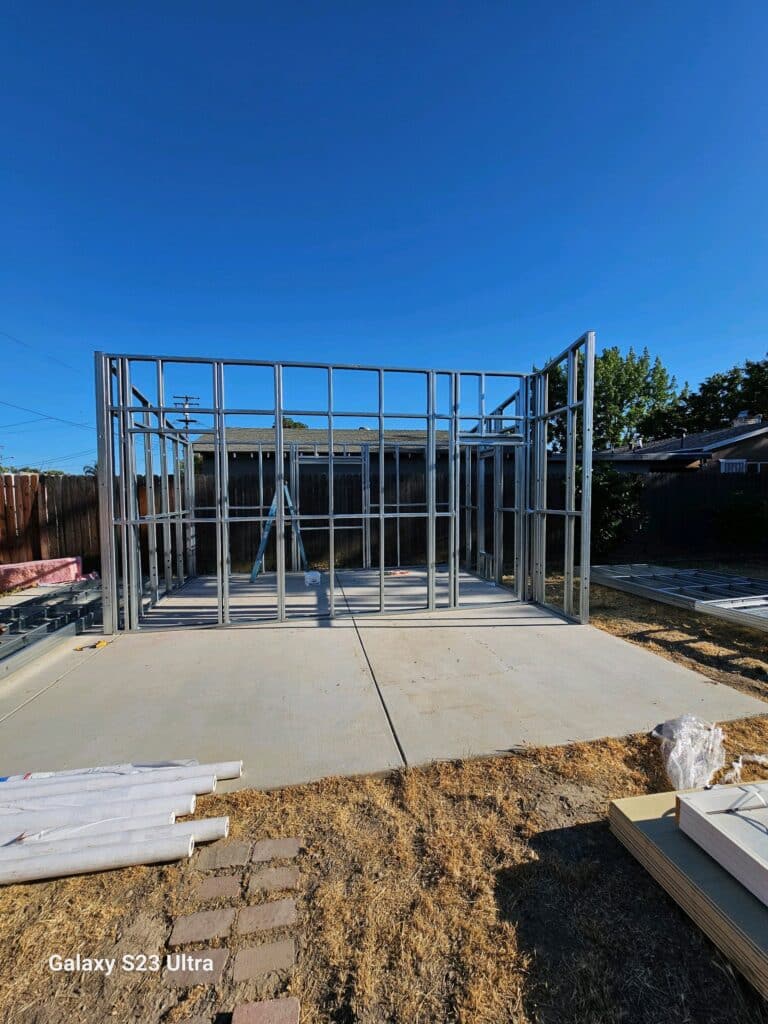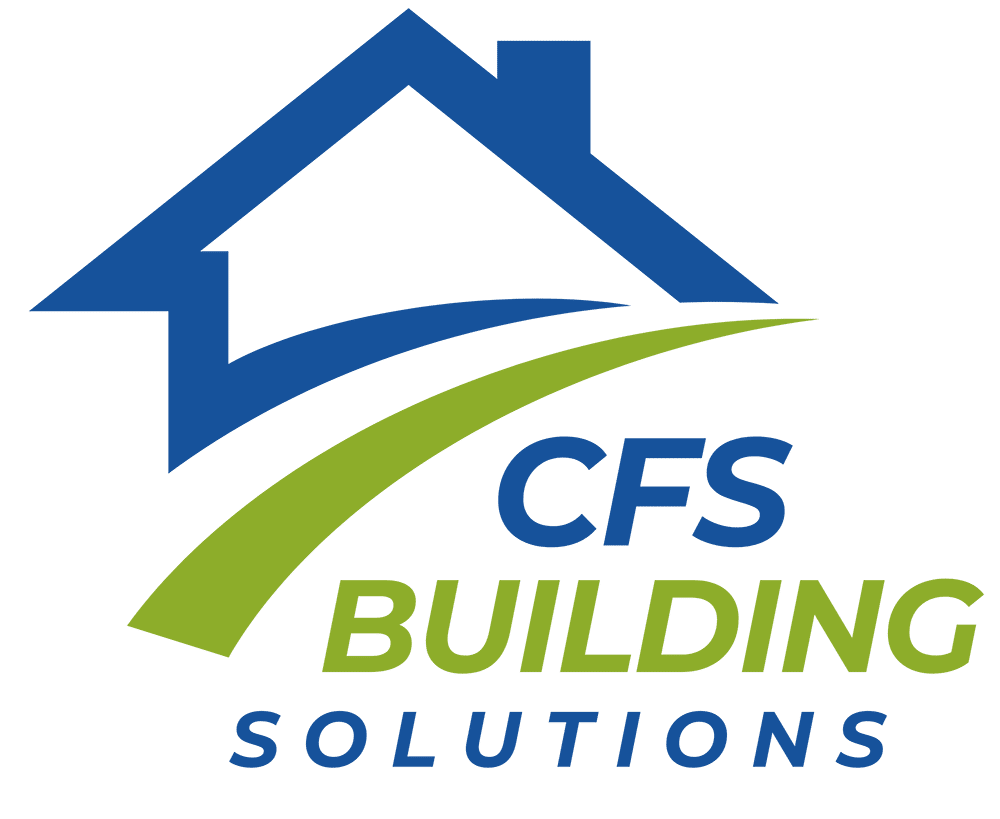Our Steel
At Well Done 1 Homes, we prioritize quality and compliance in every aspect of our construction process, including the use of steel.
Our steel materials adhere to American standards and regulations, ensuring that our buildings meet the highest industry standards for safety, durability, and performance.
Our steel ranges between G60 and G90,our structural engineers determine the gauge of steel which is required for your project with the specific grade determined by factors such as location and zoning requirements. These grades represent the thickness and coating of the steel, providing different levels of protection against corrosion and environmental factors. By carefully selecting the appropriate grade of steel for each project, we ensure that our buildings are resilient and long-lasting, even in challenging conditions.

One of the key advantages of using steel in construction is its durability and longevity.
Unlike wood, which typically comes with a 10-year warranty, our steel structures are backed by a 50-year warranty. This warranty provides peace of mind to our clients, knowing that their investment is protected for decades to come.
It’s important to note that our steel construction process follows the Cold-Formed Steel (CFS) method. CFS involves shaping steel sheets or strips into structural components using cold-working techniques, such as bending and roll forming. This process allows for precise manufacturing of components and ensures consistency and accuracy in construction.
By leveraging the strength and durability of steel through the CFS process, we deliver buildings that not only meet but exceed industry standards for safety, efficiency, and sustainability. Whether you’re building an ADU, a primary residence, or any other structure, you can trust Well Done 1 Homes to provide compliant and high-quality steel construction solutions.

When incorporating Cold-Formed Steel (CFS) into your construction projects, it’s crucial to adhere to the rigorous standards set by American regulatory bodies.
Here’s a simplified overview to ensure compliance with USA steel standards:
- Building Codes: Understand and comply with local, state, and national building codes that govern CFS usage. Important codes include the International Building Code (IBC) and standards set by the American Society of Civil Engineers (ASCE).
- AISI Standards: Follow standards and specifications provided by the American Iron and Steel Institute (AISI) for CFS design, manufacture, and installation. These cover aspects like design loads and material properties.
- ASTM Standards: Choose materials and products meeting ASTM International’s technical standards related to CFS construction. This ensures quality and performance in components such as steel, coatings, and fasteners.
- Structural Engineering: Collaborate with a licensed structural engineer experienced in CFS to design and analyze your building’s structural integrity, ensuring compliance with safety requirements and building codes.
- Quality Control: Implement quality control measures throughout construction, including material testing and inspections, to maintain the integrity and durability of CFS components.
- Building Permits: Obtain necessary permits from local authorities before construction begins, submitting detailed plans demonstrating compliance with CFS-specific codes and standards.
- Inspection and Certification: Schedule inspections at key construction stages to verify compliance with codes and specifications. Consider involving third-party inspectors or certification agencies for independent verification.
Following these guidelines ensures that your CFS construction meets regulatory requirements, guaranteeing the safety and quality of your project.


